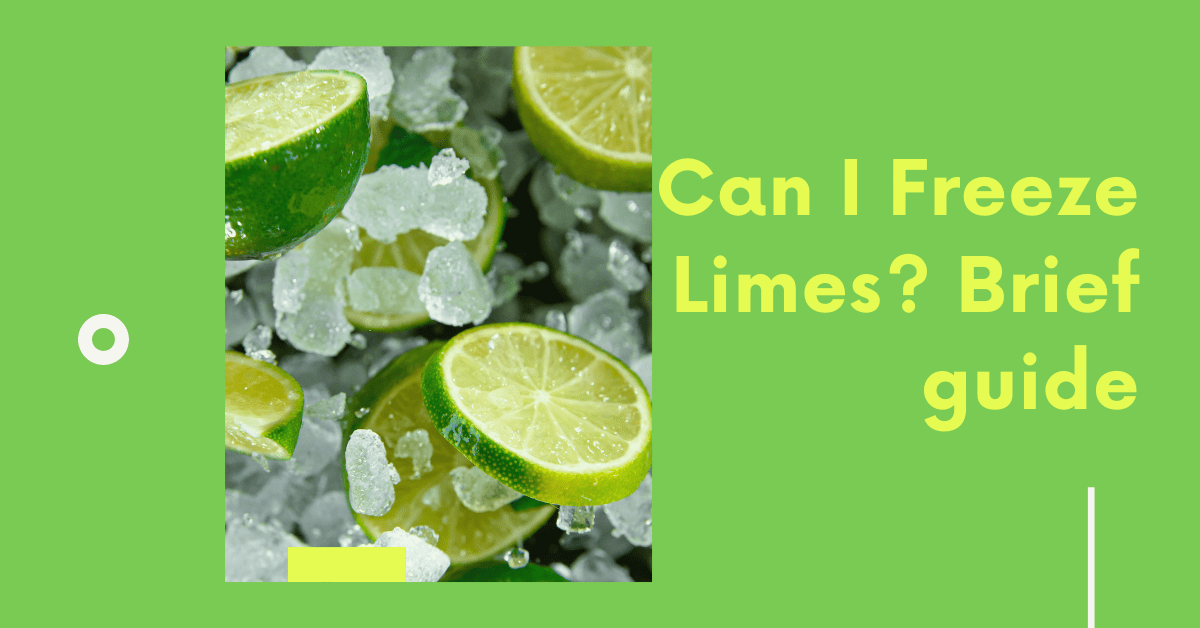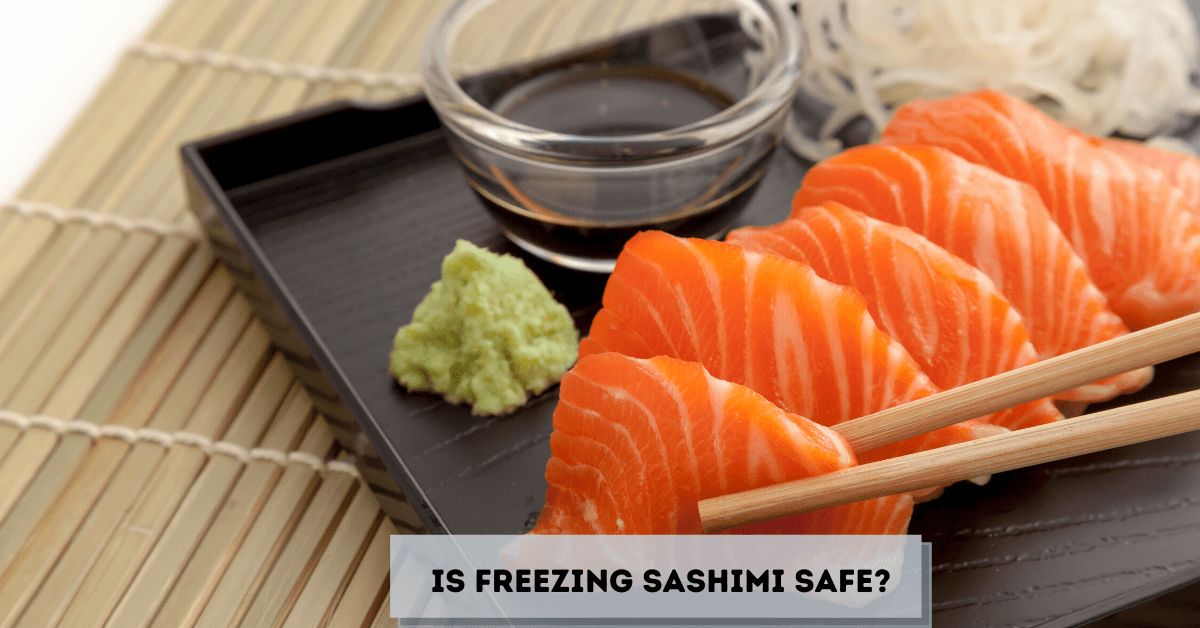Can I Freeze Limes? Brief guide

Key Takeaways
1. Discover how freezing limes can help cut down on food waste and save money by extending their shelf life.
2. Learn techniques to ensure you have limes available even during the offseason, enhancing meal variety.
3. Explore simple steps for freezing limes, including storing zest and juice, enabling convenient usage.
4. Despite freezing, retain essential nutrients like vitamin C, making frozen limes a healthy addition to your diet.
Millions of tons of food are wasted every year. This is not only just a waste of food but also affects our economy, water, and air. FAO reported food waste increases 50% since the 1970s.
Half of the waste is caused by individual consumers. Each year individuals are throwing away more than $ 2000 waste every year. Moreover, 52% of wasted food includes fruits and vegetables.
A key to avoiding waste is tighter meal planning. A focus must be given on minimizing the loss of food and increasing the shelf life of commodity without much waste.
In this article, we will focus on how to freeze limes to make them available in the offseason. So, let’s start.
Storing of food:
The fruits and vegetables have high water content and can easily be damaged. So vegetables and fresh fruits are stored carefully by keeping their taste and appearance. The storage conditions vary; however, some guidelines must be followed to keep them fresh.
- Before consuming fruits and vegetables, they should be washed and cut properly. This will increase the growth of bacteria and mold.
- They should be placed separately in the refrigerator as fruits release ethylene gas that will over-ripe and decay the vegetables.
- Protect the vegetables from drying out; however, they also need some breathing. Refrigerate vegetables loosely in plastic bags with some ventilation.
- Keep onions, potatoes, winter squash, and garlic in a cool, dry place and never be placed in the refrigerator.
- Some vegetables like celery, Brussels sprouts, kale, chard, and fresh herbs will stay fresh with their stems and placed in water. They should be loosely packed and refrigerate. The water should be changed after a few days.
- Most of the fruits ripe at normal temperatures then placed in the fridge. For best flavor, eat them at optimal temperature.
Limes can be frozen:
The vegetable in less amount can be blanched quickly, cooked, and kept in the freezer. However, fruits cannot be blanched. The treated fruits and vegetable lose their actual texture, so use them as soon as possible.
Limes are budget-friendly when bought in bulk, so it is best to freeze the limes and lemons. Squeeze the lemons pour the juice into ice cube trays, and frozen. This juice can be used in cakes, beverages, or sauces.
Lemons and limes, once picked, do not continue to ripen like other fruits. The main purpose is to freeze the lemons to maintain their freshness and keep the lemons juicy and moist.
The first step of freezing is to prepare the limes and cut them either in slices or wedges.
Freezer to the Rescue:
Buying a single lime or lemon can be expensive; however, buying the bulk can be worthy if you can store them properly to enhance their life.
The frozen limes and lemons are very easy to zest, and thawing them will give out their juice more easily. The cell wall is weakened by the freezing and thawing procedure.
Placing the limes in a microwave or under warm running water for 15-20 seconds can thaw them easily. Make sure to zest them first before thawing as zesting can be difficult if the fruit is soft post-thawing.
Can you Freeze Lime Zest:
The lime zest is the green part of the peel except for the bitter white pith. A grater is used most probably the Microplane to zest a lemon or lime. In an airtight container, the fragrant pieces can be frozen. However, they can be dried out in 1-2 months. The best option to preserve lime zest is to freeze whole limes.
It can be frozen on its own. While the less moisture in the zest and bag dry will dry the zest and damage the flavor, so freezing the zest alone is a good option if you use it in the next two months.
How long can you freeze Limes?
The zest and thin slices must be used in 2 months or so. However, the slices, wedges, and whole limes can be preserved for almost a year.
Defrosting Limes:
The amount you want to use might be thawed in the microwave for a few seconds or under the hot running water for 1-2 minutes. These two methods make the lime more soft than normal.
If you have time, then put them in cold water as this is the best. The method takes 15-20 minutes to defrost the lemons. The fruit soaking can be stopped by putting the sealed bag into a big bowl.
Methods used to freeze limes or lemons:
Vacuum Sealer:
The lemons, oranges, and limes can be frozen in a vacuum sealer. This is also used to freeze veggies, fruits, meats. It is worth buying a product.
To freeze using a vacuum sealer:
- The citrus is cut into slices or wedges.
- In a vacuum bag, place the lemons in a flat position.
- Press the vac /seal button.
- Quickly hit the seal button as the air begins to get out, and the juice leaves the fruit.
- These slices and wedges are not tightly sealed as you want the juice of a fruit.
- This is all done to prevent freezer burn.
The Best way to store Lime:
- The lemons and limes are stored in a fruit bowl or on the counter. This helps to retain the limes and lemons for a week.
- They can also be stored in a refrigerator to increase their shelf life; however, they also dry out.
- The limes and lemons are stored in sealed bags can last for 3-4 weeks.
- Another way to extend the shelf life of lemons and limes is freezing slices or wedges of lemon and lime, and once you need lime in a dish, take it out and squeeze in beer, cocktails, pan sauces, and homemade soups.
- Juice of lime and lemon can be frozen in ice cube trays.
- Citrus juice can be zest and freeze it. The plastic bags are used for this purpose, and only a pinch is used.
How to freeze limes or lemons without a vacuum sealer:
If you don’t have a vacuum sealer, then it’s ok to freeze limes and lemons in freezer bags taking out as much as possible and use it within three months.
Great ideas to use frozen limes or lemons:
- Flavored waters.
- Pan sauces and general cooking, artichokes, Chicken Franchise, soups.
- Make the citrus syrup.
- Baking items like lime or lemon bars, lemon or lime pound cakes or loaf cakes, lemon cookies, muffins, pies, cheesecakes, tarts, donuts, etc.
- Lemonade or homemade lime aid.
- Homemade water ice.
- Used as a Garnishee.
PROS & CONS of Freezing Whole Limes
The whole limes and other fruits can be frozen. But the fruit will be mushy if you thaw them out. The fruit will be mushier if you wait longer to use them after defrosting. If your goal is to extract juice, then mushy lime or lemon is easy to juice. Freezing whole lime is a better option if citrus zest is your goal. Zesting the fresh fruit is as easy as zesting a frozen lime or lemon. Use them quickly as lime, once thawed, will get soft, and removing the zest is difficult.
Conclusion:
In this article, we have discussed freezing limes or lemons to increase their shelf life and use them in the offseason. Proper storage will help to get the limes and lemons without causing damage to your commodity and saving your money.



